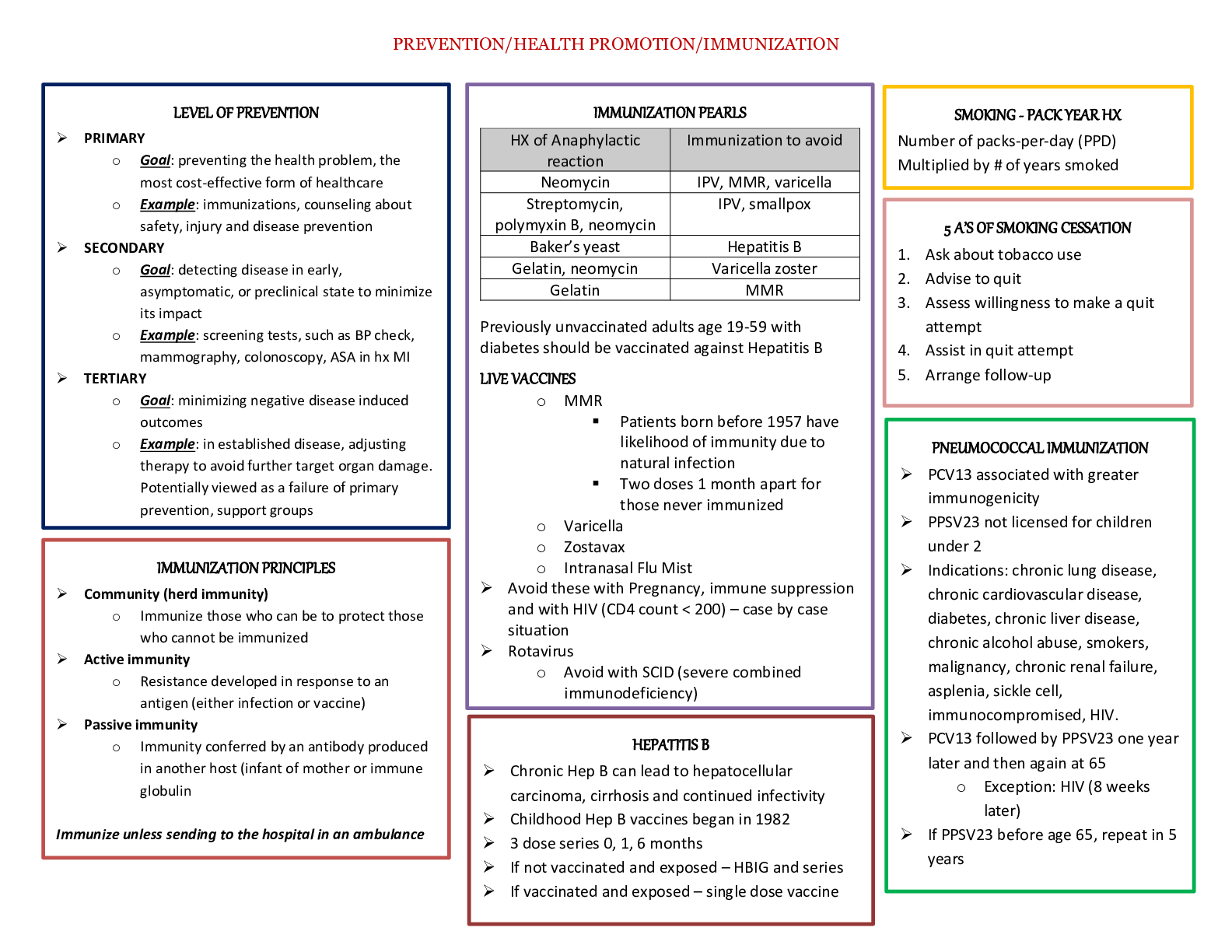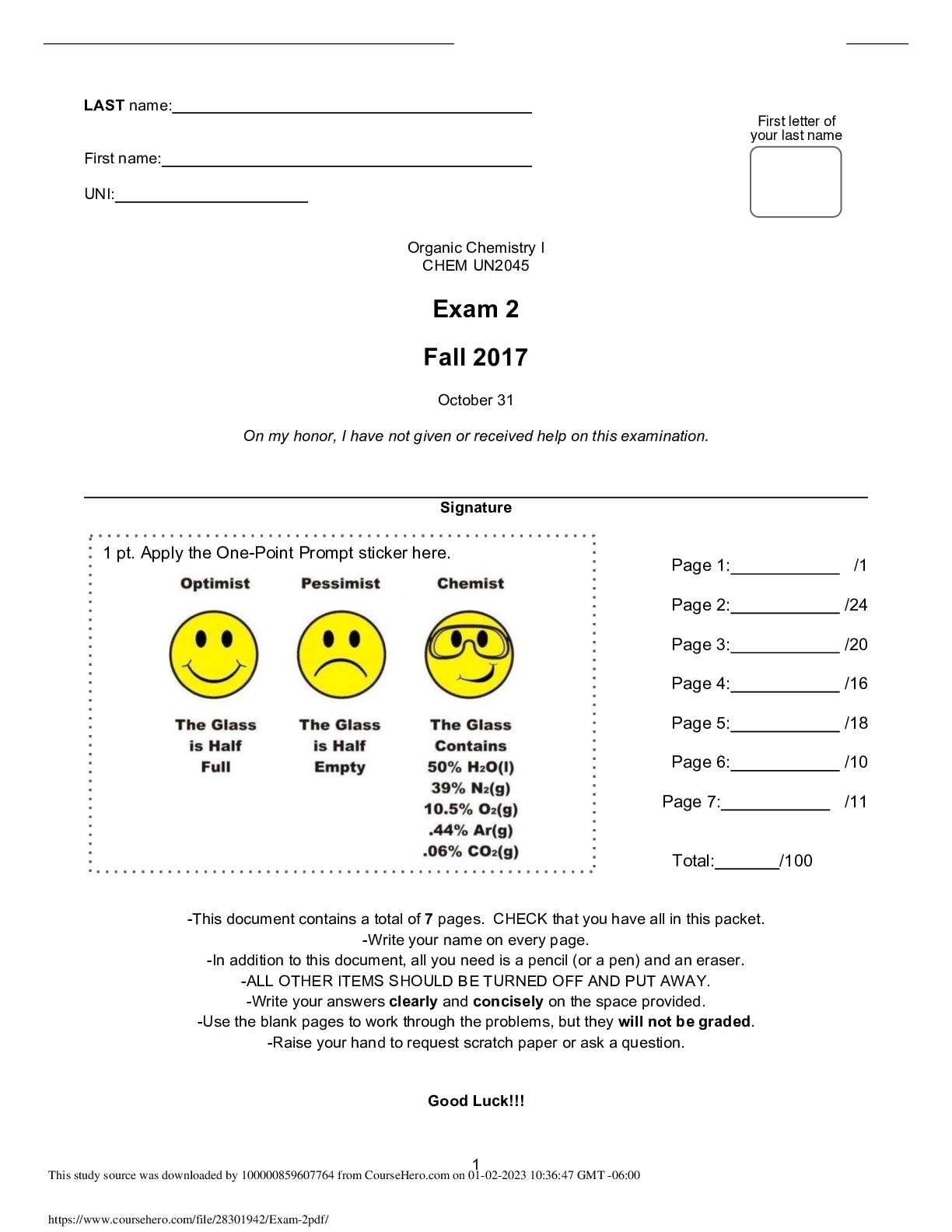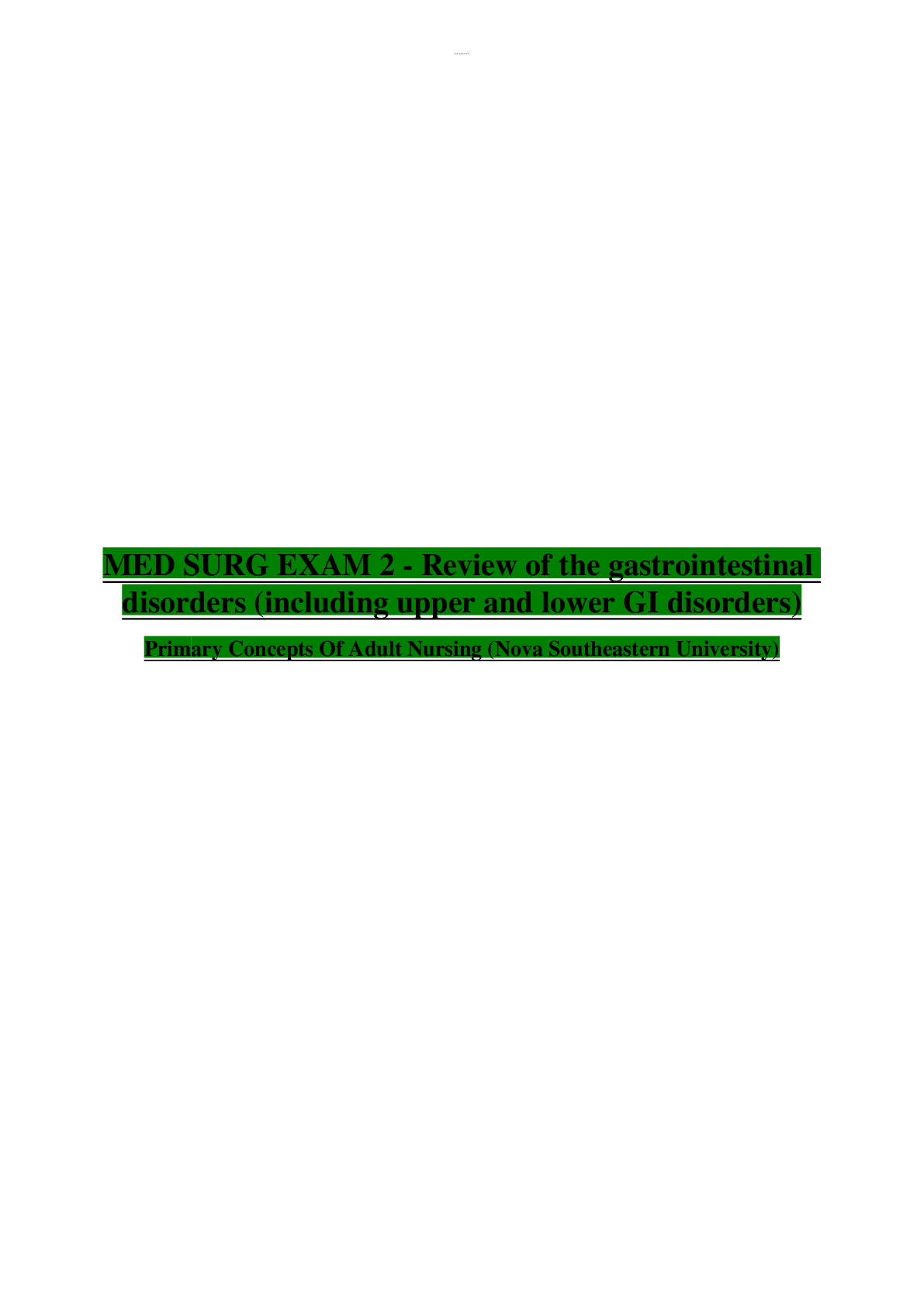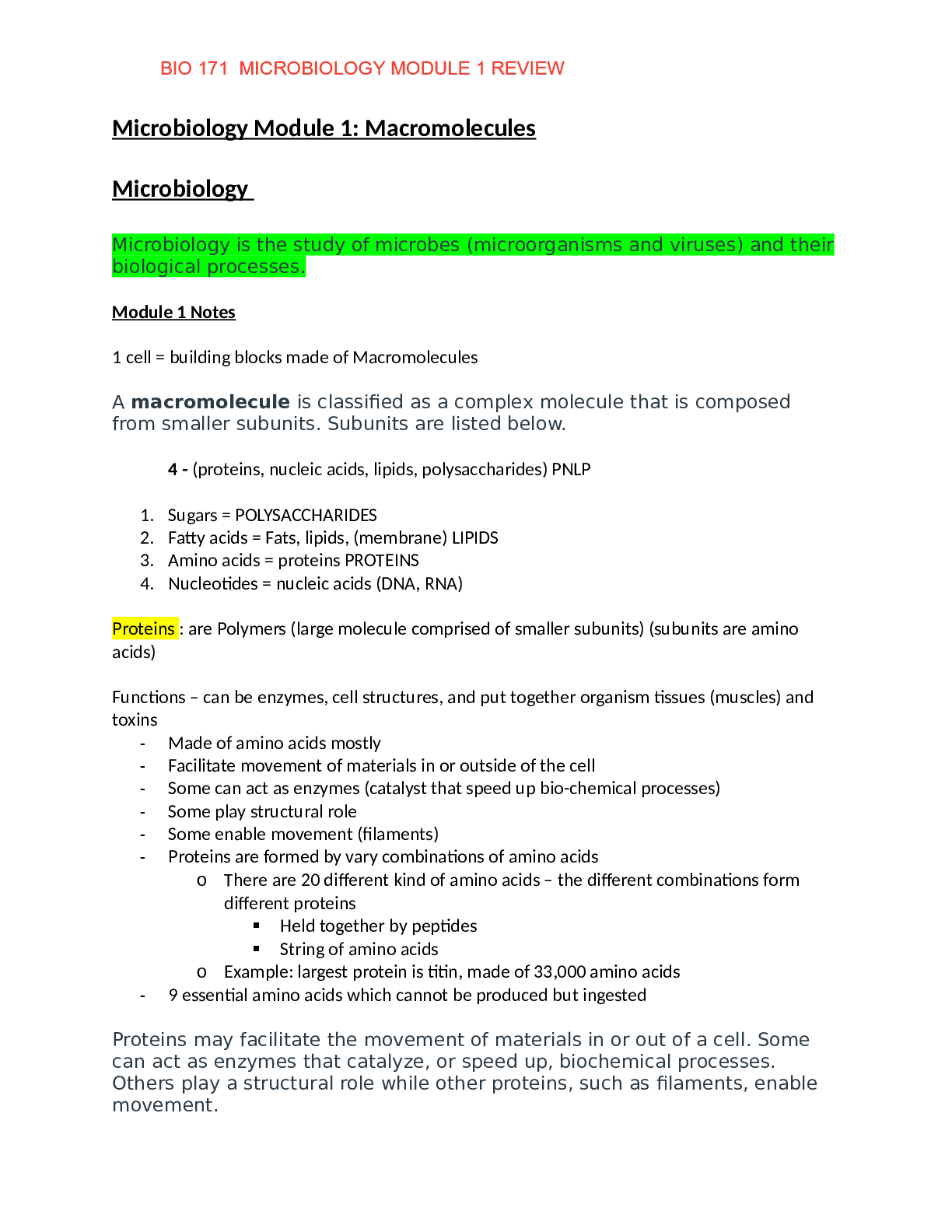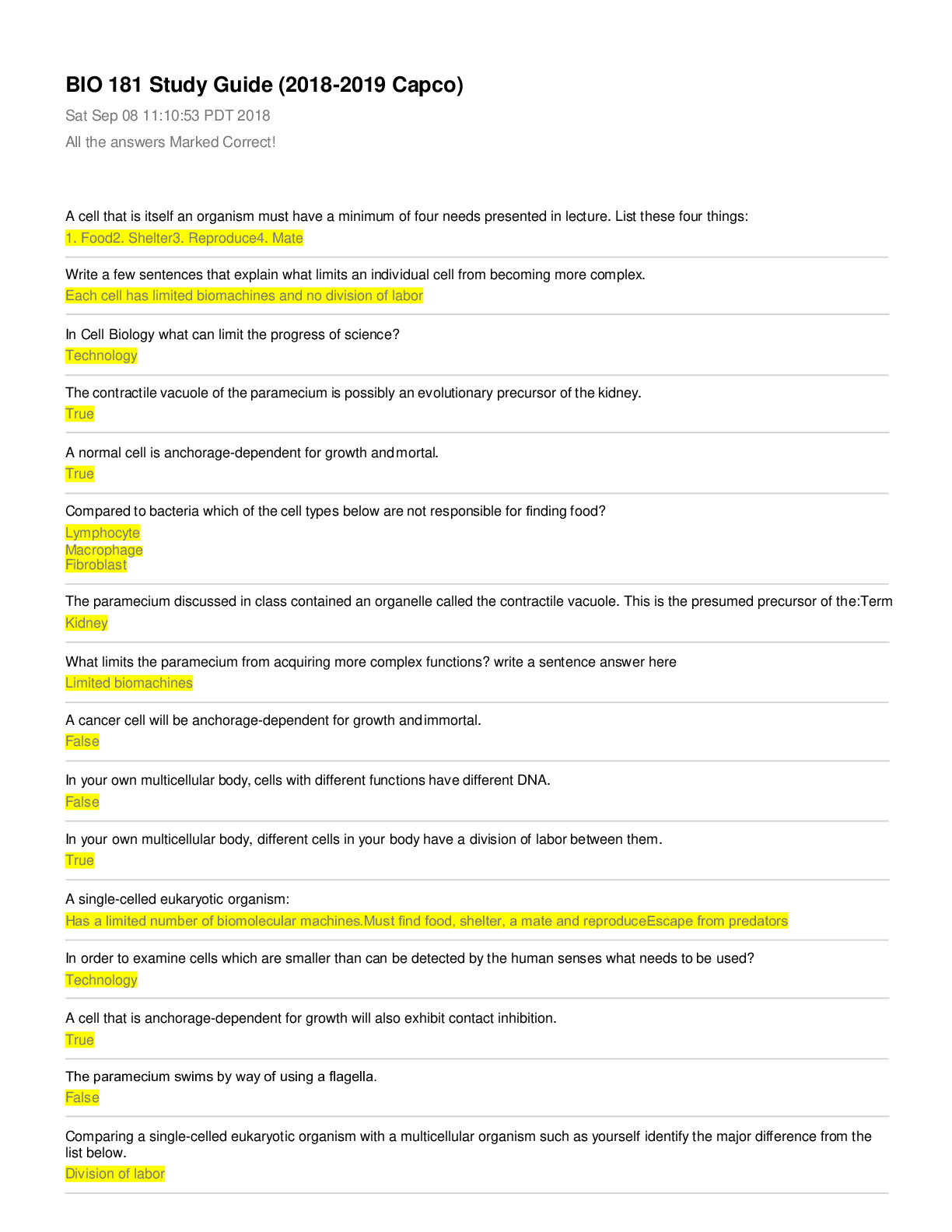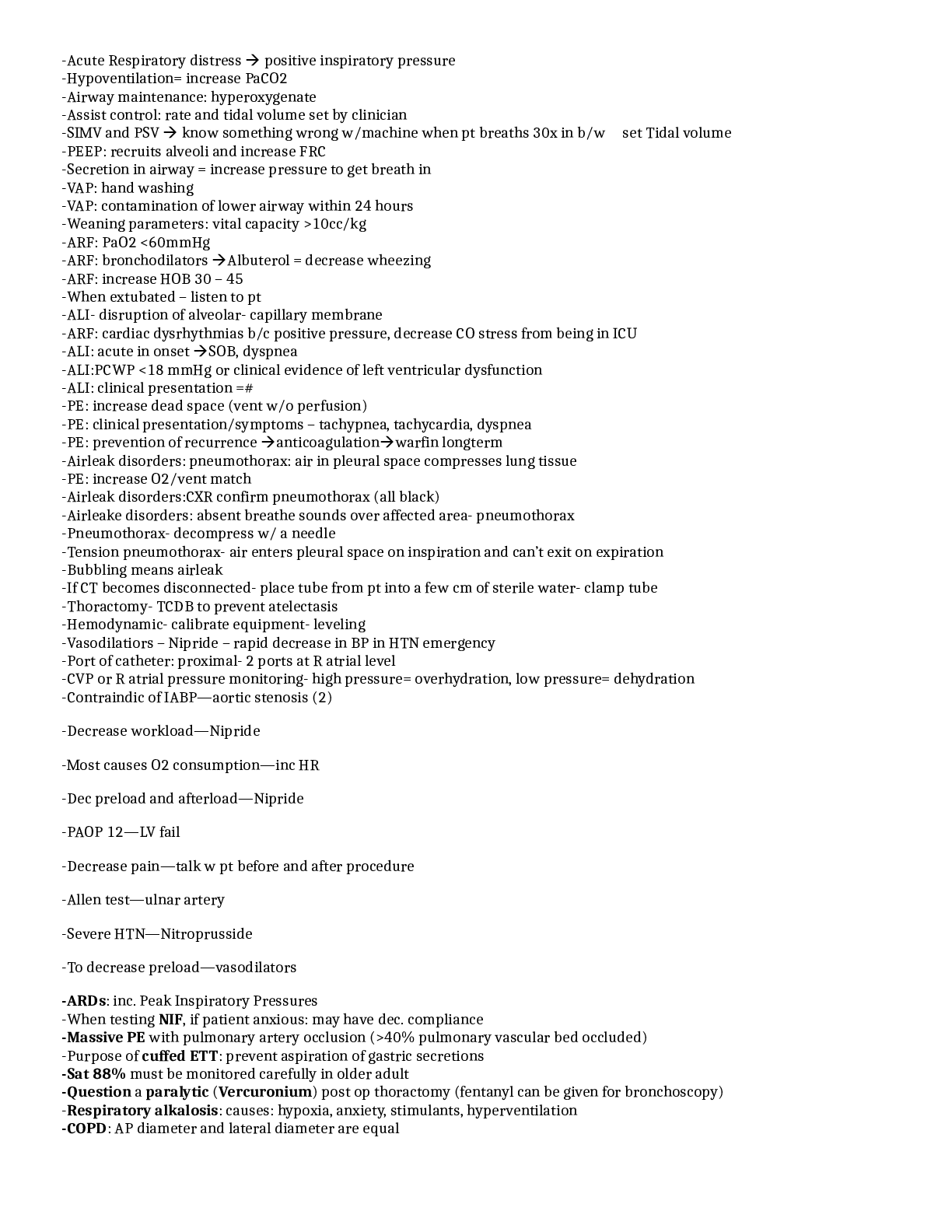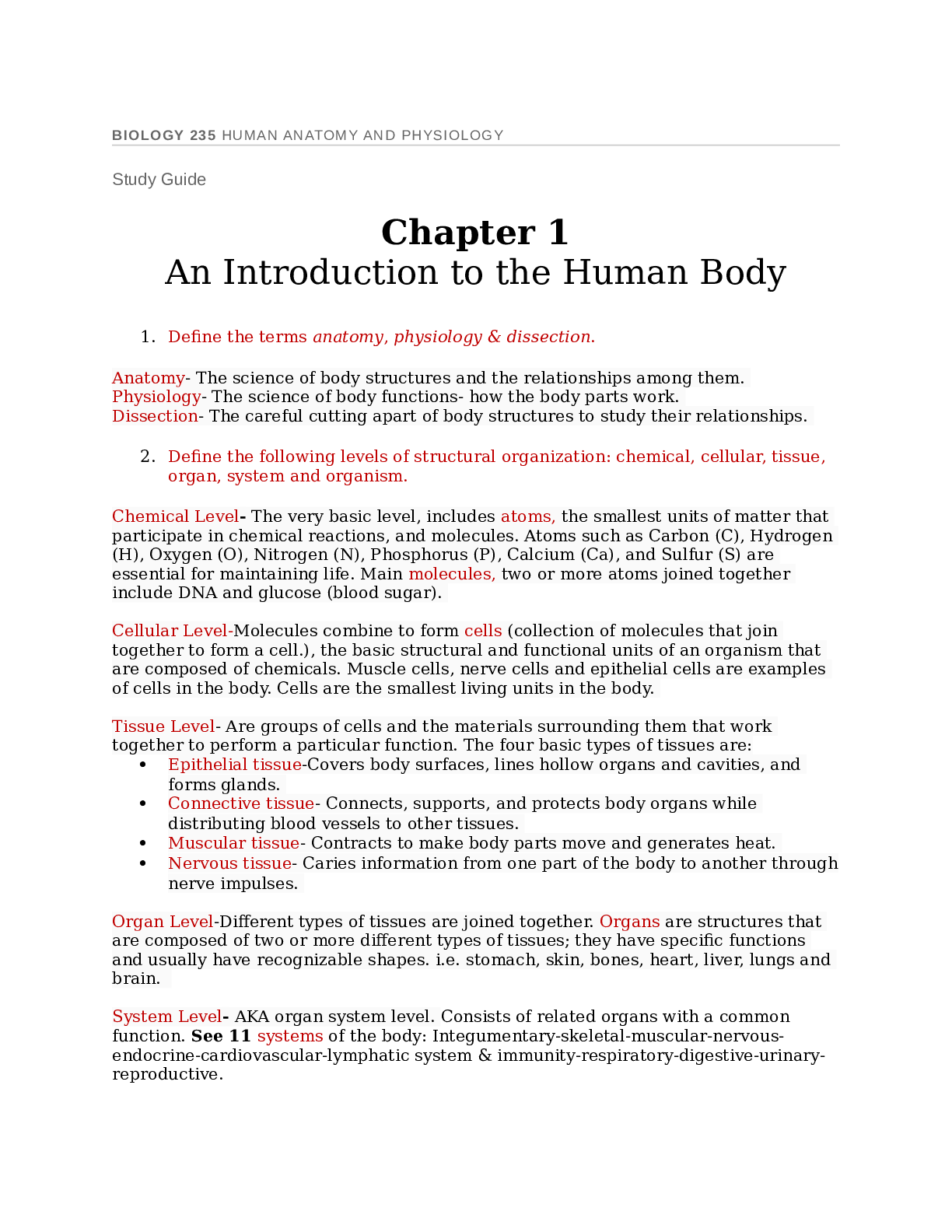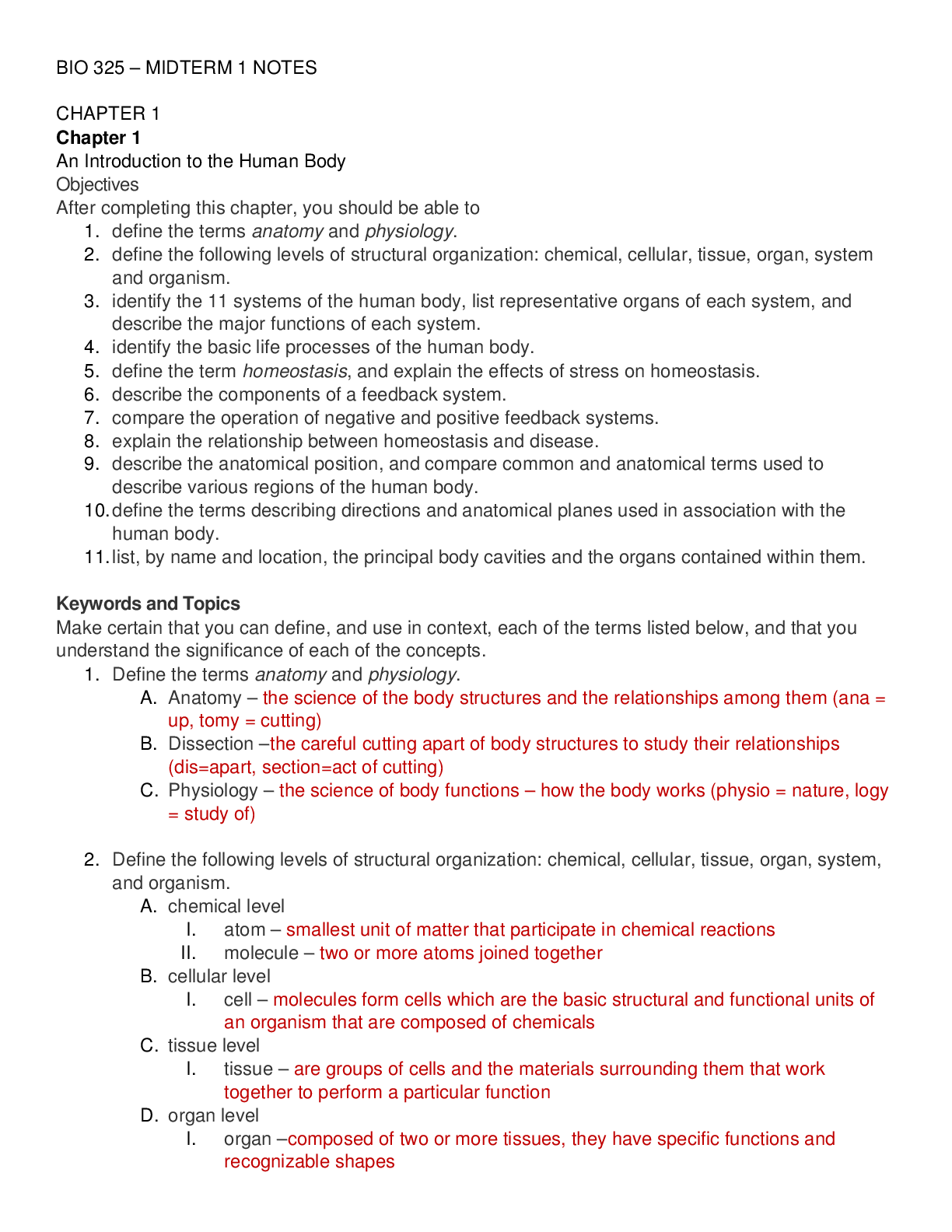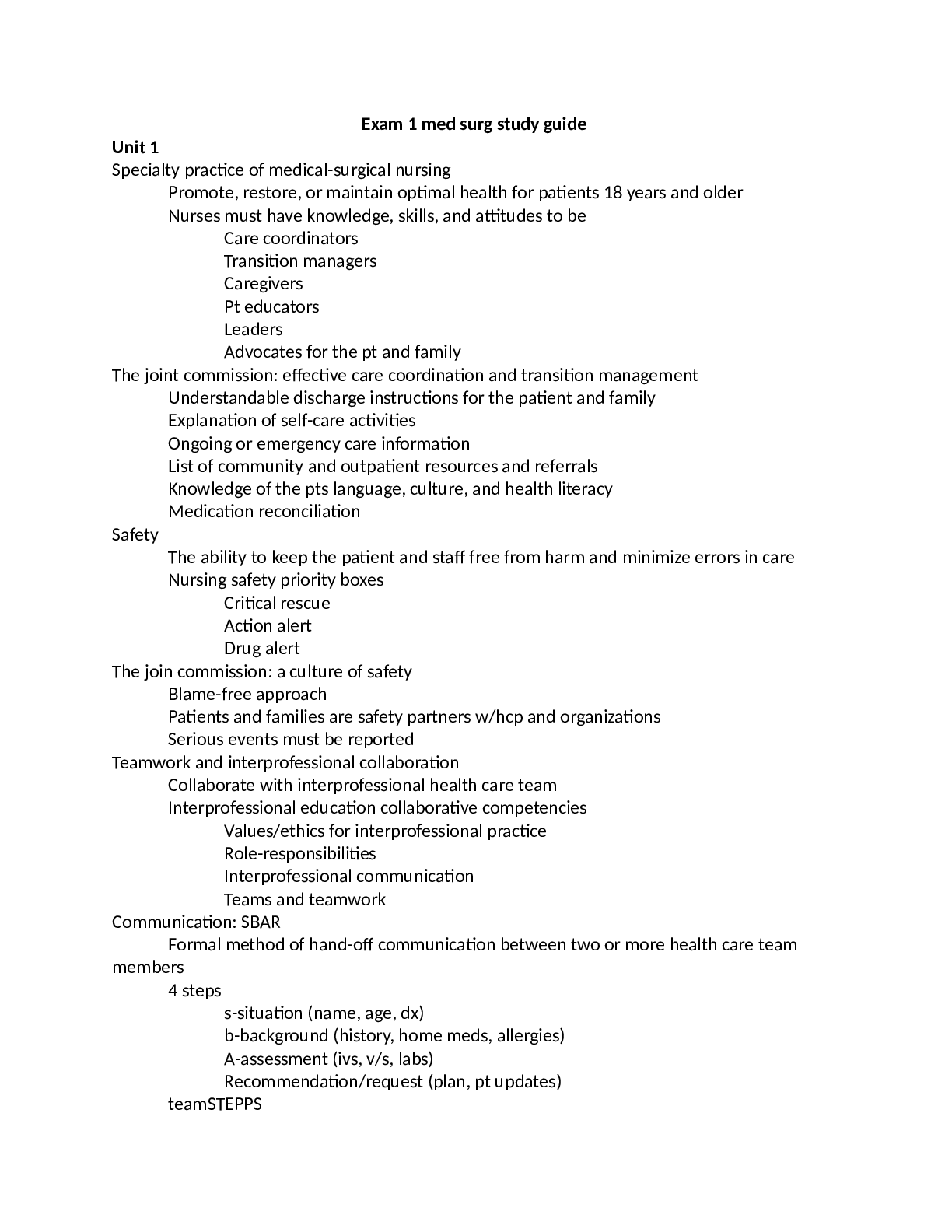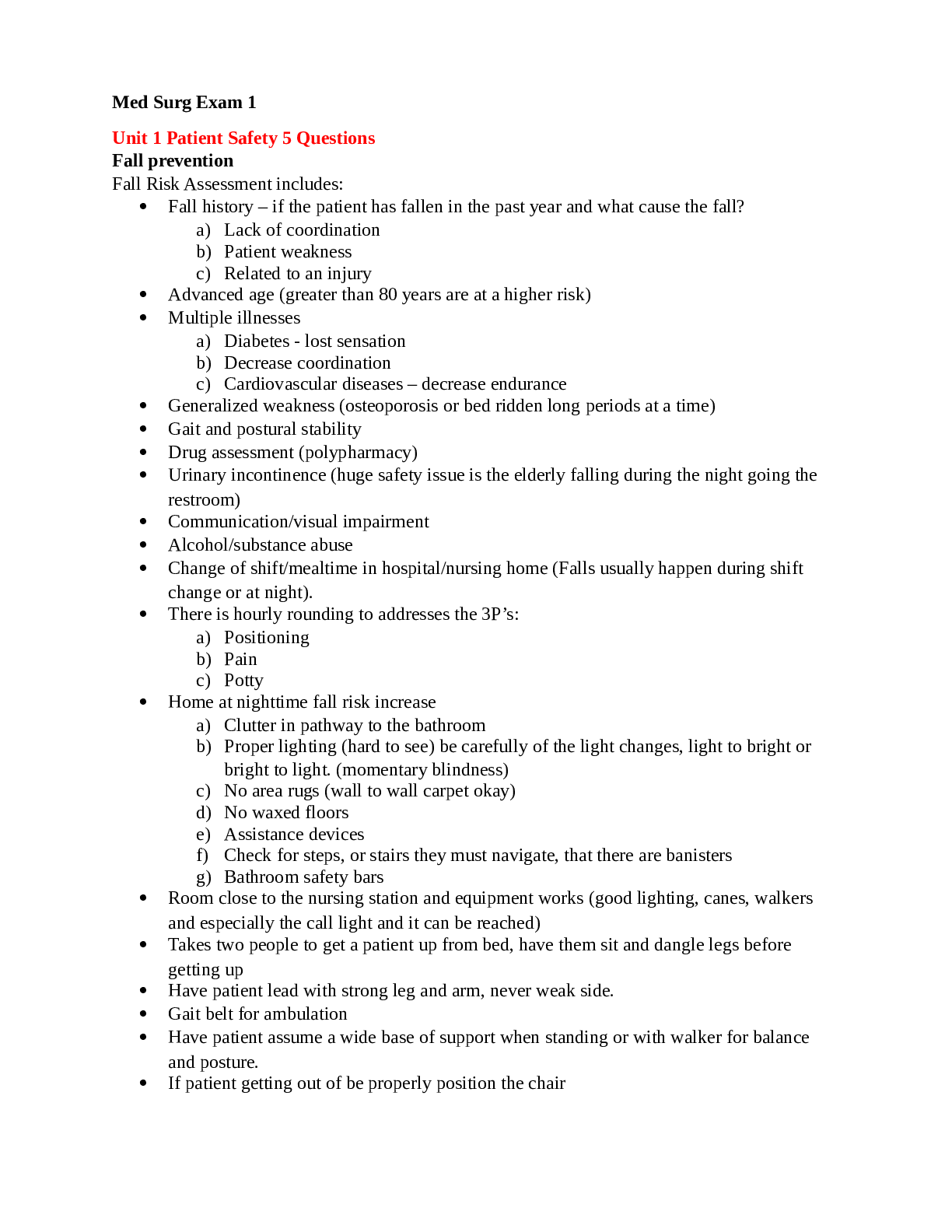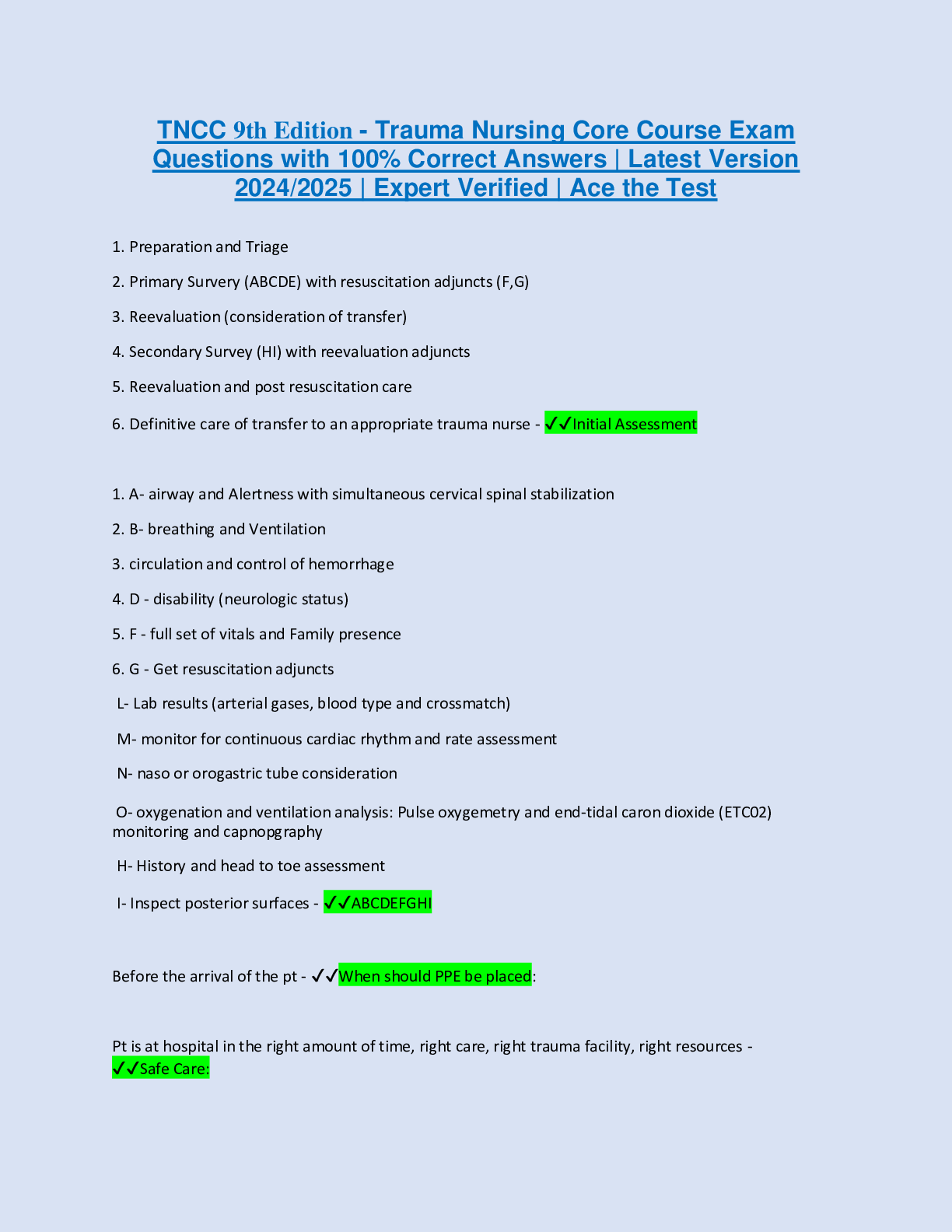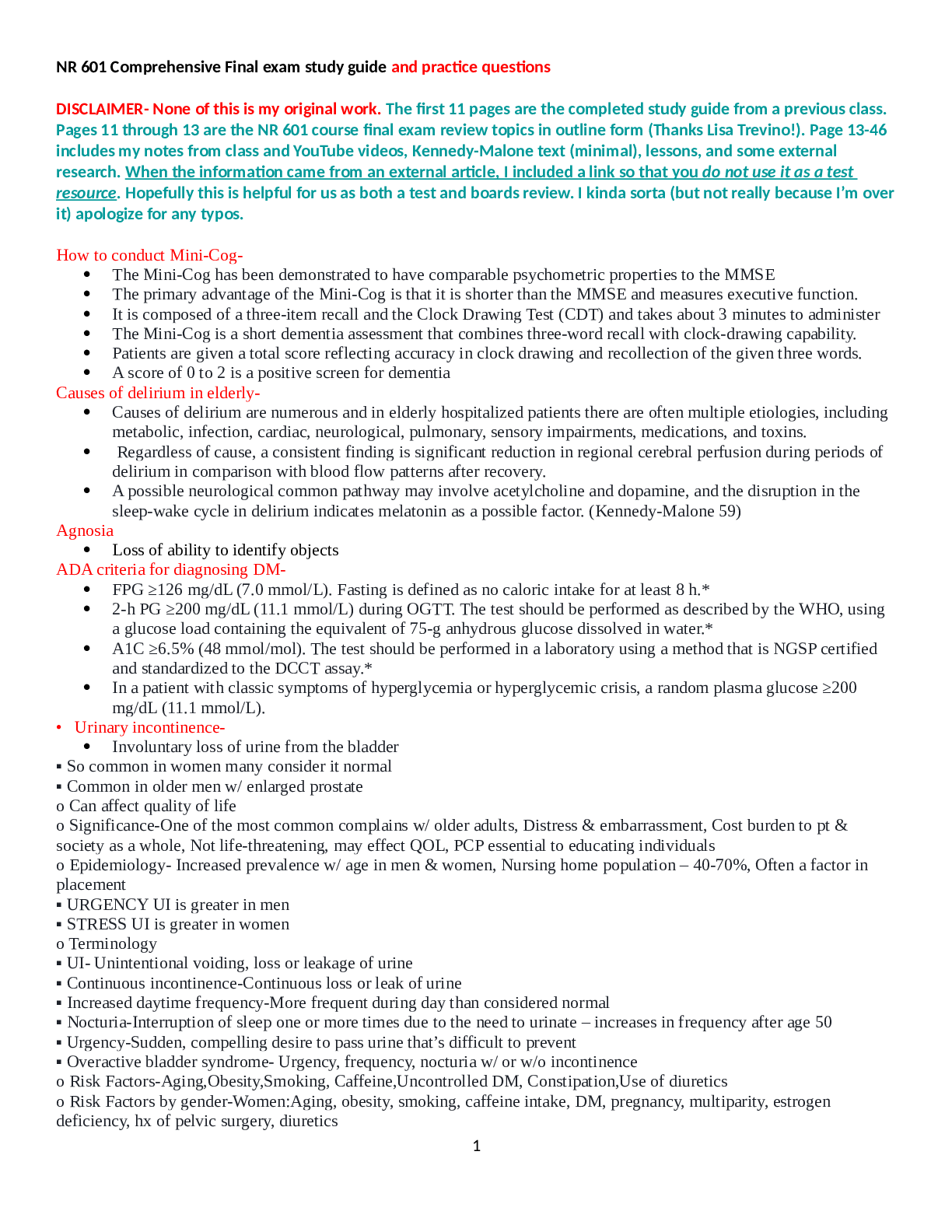Psychology > STUDY GUIDE > PSYCHOLOGY 1012 CBA Psychology in Social Media Mod 1 Complete Study Guide. (All)
PSYCHOLOGY 1012 CBA Psychology in Social Media Mod 1 Complete Study Guide.
Document Content and Description Below
PSYCHOLOGY 1012 CBA Psychology in Social Media Mod 1 Complete Study Guide.Module One Introduction We will assume there has to be a systematic way of examining this very complex and diverse subject m... atter; thus, we will begin the journey by examining the evolution of social media by looking at how media is studied. One way to examine media from a psychological perspective is to integrate the theoretical perspectives into the overall discussion. Let’s start by exploring how the media impacts our perceptions, decision making, and behaviors. By completing this module, you will master the following competencies: • Evaluate theories of the psychological influences of social media. • Examine how cultivation theory explains the effects of online behavior. • Examine how social cognitive theories relate to building relationships within social media. • Analyze how an individual behaves online through the socialization theory. • Examine how uses and gratification theory describes online motivations. • Analyze how the agenda-setting theory explains the structure of online environments and revenue. • Examine how individuals interpret others online through the schema or script theory. This module will review color key points in regard to: • Evaluate the impact of social media on daily life. • Analyze how social media impacts our attitudes and behavior. • Analyze how individuals establish relationships online. • Explore how social media affects the teaching and learning styles of individuals. • Examine how an individual’s access to information through social media influences their health. • Analyze how social media impacts children, adolescents, and their families. In this module we will consider national and global impact of various sources to be explored include online networking, distance team building, and social media’s impact within developmental perspectives. Please refer to the following articles for further resources. Additional Resources Signed Networks in Social Media Automaticity of Social Behavior: Direct Effects of Trait Construct and Stereotype Activation on Action Social Media? Get Serious! Understanding the Functional Building Blocks of Social Media Theoretical Views Overview One way to examine social media from a psychological perspective is to integrate the theoretical perspectives into the overall discussion. There are several theoretical viewpoints which we'll explore in a moment. This allows us to examine this important subject. The most prominent theoretical views to understand this aspect of human behavior are cultivation, and social cognitive learning theories. Both theories attempts to explain how frequent exposure to social medial might lead to changes in values, beliefs, attitudes and behaviors. Theoretical Views Key Points Cultivation theory implies that regular and frequent exposure to certain types of social media information have an effect on a person's attitudes and behavior. Social learning theory explains that we learn through observation. Behavioral research relied on understanding and describing overt behavior and the relations of stimuli on that behavior (external processes). Social cognitive approach looks at the process by which humans learn through observation and the process of decision making (internal processes). Module 1 Lecture Notes Slide 1 Title Page Slide 2 One of the challenges of understanding the effects of social media on behavior is determining how much interaction a person have and the type of social media content engaged/viewed. For instance, if someone primarily YOUTUBE videos, does this watching of videos change the person's world view, attitudes, or how the individual acts overall? Another example would be the amount and type of online games. What effect does playing online violent video games several hours a day have on a person, and does that effect change with age and maturity level? What we are discussing overall is how the social media influences the common conceptions of reality. Slide 3 According to Cultivation theory, regular and frequent exposure to certain types of social media sites influences a person attitude and behaviors. This approach suggests that social media effects occur like the slow buildup of formations on cave floors, which take their interesting forms after eons of the steady dripping of limewater from the cave ceilings above. Slide 4 Cultivation Theory Principles suggests that social media is responsible for shaping, or ‘cultivating’ users’ conceptions of social reality. The combined effect of massive social media exposure by users over time subtly shapes the perception of social reality for individuals and, ultimately, for our culture as a whole. Slide 5 Cultivation Theory Principles suggests that social media is responsible for shaping, or ‘cultivating’ users’ conceptions of social reality. The combined effect of massive social media exposure by users over time subtly shapes the perception of social reality for individuals and, ultimately, for our culture as a whole. Slide 6 According to social learning theory, we learn through observing others. Albert Bandura evolved a psychological theory from the more prevalent behavioral school of thought to include the cognitive processes related to learning and decision making. He looked at the process by which humans learned through observation and the process of decision making (internal processes). Understanding the purposes of overt behavior and the internal processes of thinking, learning, and memory was only a part of Bandura’s theoretical views. He proposed a social cognitive theory that describes human behavior as a product of the environment, personal (internal) factors, and behavior. The three factors interact in a reciprocal fashion, which means that each factor interacts with the other and influences each other. Slide 7 According to the Social Cognitive Learning Theory Principles, we learn much of what we do through observing and speaking with others (“models”), rather than through personal experience We form a cognitive image of how to perform certain behaviors through modeling, and use this image as a guide for later behavior. We decide which behaviors to keep, and when to use them, by using: [Show More]
Last updated: 1 year ago
Preview 1 out of 32 pages
Instant download
.png)
Instant download
Reviews( 0 )
Document information
Connected school, study & course
About the document
Uploaded On
Mar 17, 2021
Number of pages
32
Written in
Additional information
This document has been written for:
Uploaded
Mar 17, 2021
Downloads
0
Views
42


